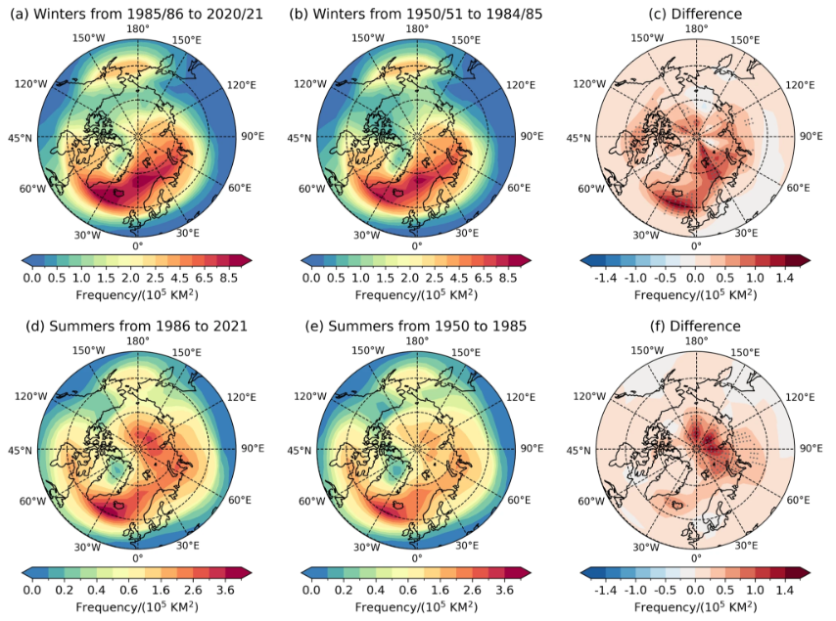A team of dedicated Earth scientists has sounded the alarm regarding the dramatic intensification of Arctic cyclones over the past 50 years.
Their findings, published in the journal Communications Earth & Environment, offer a sobering look into the rising climate turbulence in the Arctic region.

Arctic Cyclones Getting Stronger, More Frequent
Phys.org reports that the team, comprising researchers from North Carolina State University, the University of Alaska Fairbanks, North Carolina A&T State University, and Sandia National Laboratories, used comprehensive data analysis to demonstrate that not only have these cyclones become more frequent, but they have also grown more powerful, lasting longer and wreaking havoc on the fragile Arctic ecosystem.
The Arctic, a region known for its extreme cold and pristine landscapes, has been under siege due to climate change. Scientists have been observing temperature spikes in the Arctic, leading to delayed ice formation and earlier ice melt.
Last year, a powerful cyclone with wind speeds reaching up to 67mph shattered winter ice, accentuating the urgency of the research conducted by this team.
Interesting Findings
To understand the extent of this issue, the research group embarked on an extensive data collection mission spanning back to the 1950s.
They meticulously compared cyclones that had ravaged the Arctic over seven decades. What they discovered was deeply concerning: not only were Arctic cyclones becoming larger and more potent, but their frequency had also surged.
Rising temperatures, they noted, played a significant role in forming these cyclones. As the Arctic experiences temperature increases at an alarming rate, these cyclones have become a more regular occurrence.
The region's temperature gradient shifts further accentuated these cyclones' size and strength. Changes in the jet stream, particularly in the winter, were also linked to the increase in Arctic cyclones.
Moreover, polar air vortexes in the troposphere have been strengthening, leading to a higher occurrence of cyclones during the summer months.
What This Study Holds
The consequences of this trend are far-reaching. The researchers warn that as larger and more frequent cyclones strike the Arctic, more sea ice is broken up, accelerating the process of climate change in the region.
These cyclones are exacerbating the already precarious state of the Arctic environment and its fragile ecosystems.
In Other News
Warm waters in the Caribbean Sea are causing the most severe event of coral bleaching ever recorded in the region, posing a serious threat to the region's famed coral reefs.
Scientists and marine biologists are sounding the alarm, warning that this crisis has the potential to become a worldwide event with catastrophic ramifications for the world's seas.
The Caribbean's coral reefs, recognized for their remarkable biodiversity and bright underwater vistas, are severely threatened by rising sea temperatures.
Stay posted here at Tech Times.
Related Article : Shocking Study Reveals US East Coast's Doubled Risk of Rapid Hurricane Intensification

ⓒ 2026 TECHTIMES.com All rights reserved. Do not reproduce without permission.




